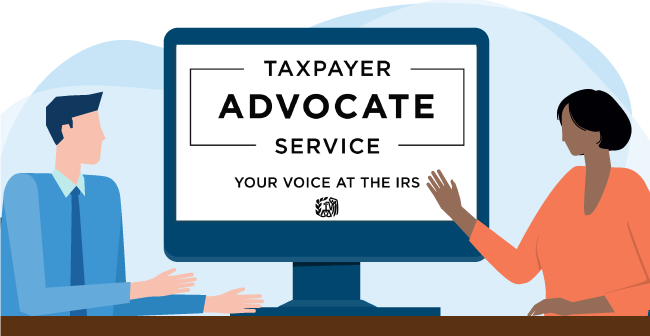In the 2023 National Taxpayer Advocate report to Congress, this organization lists a number of issues that the IRS should address as priorities for “serious” problems. The report is public and published each year. Additionally, the report provides details in plain language of why each problem has a significant impact on the taxpayers and how the IRS should improve that area providing recommendations.
For several years on a row, the report has listed the “Return preparer oversight (item 5 in 2023 and item 8 in 2022) ” indicating that “Taxpayers Are Harmed by the Absence of Minimum Competency Standards for Return Preparers”
As mentioned in the summary, “… Even though tax return preparers prepare over half of the individual returns filed each year, many have no credentials and are subject to no minimum standards. Because taxpayers bear responsibility for the accuracy of their own returns, inept or dishonest preparers harm taxpayers by subjecting them to unanticipated tax deficiencies, interest, overpaid taxes, or lost refunds.”
Unfortunately, the tax preparation services industry is not properly regulated. Almost anyone with a PTIN (Preparer tax identification number from the IRS) and there is no requirement of any knowledge in taxes or any other legal topics. In fact, from the IRS website “PTIN Requirements for Tax Return Preparers LINK HERE“, it states that it takes about 15 minutes to get the PTIN and costs around $20 (once you get the PTIN, you can prepare tax returns for compensation). The specific language in the IRS website is “… It only takes about 15 minutes to apply for or renew your PTIN online… and payment of $19.75.”
Additionally, there is an application checklist with the items that you need available
- Social Security number
- Personal information (name, mailing address, date of birth)
- Business information (name, mailing address, telephone number)
- Previous year’s individual tax return (name, address, filing status)
- Explanations for felony convictions (if any)
- Explanations for problems with your U.S. individual or business tax obligations (if any)
- Credit/Debit/ATM card for the $19.75 PTIN user fee. The user fee is non-refundable.
- If applicable, any U.S.-based professional certification information (CPA, attorney, enrolled agent, enrolled retirement plan agent, enrolled actuary, certified acceptance agent, or state license) including certification number, jurisdiction of issuance, and expiration date
Yes, you are reading right there is no requirement of any education and going forward the continuous professional education CPEs is just voluntary – Note that the licensed professionals like Enrolled Agents of the IRS (EAs), Certified Public Accountants (CPAs) and lawyers do have required CPEs. At the State level is not much better as only a handful of States (7 of them – California, Connecticut, Illinois, Maryland, Nevada, New York and Oregon had minimum requirements which are usually a few hours of a qualifying course, a tax preparer bond and similar items if they are not licensed professionals listed in the previous sentence).
Tax preparers with just a PTIN are “Non-credentialed return preparers have no representation authority and are only authorized to prepare your tax return, assuming they have a valid 2024 PTIN“. We do not recommend these preparers representing you in case of an audit, examination or other tax procedures as they might not be familiar with the Tax Code (they might represent you if they prepared that tax return).
Regarding this serious problem, the National Taxpayer Advocate report to Congress has 13 pages and provides a lot of details on this issue. For example, in 2022 around 59% of the tax returns were prepared by non-credentialed preparers (maybe that is one of the reasons that you see so much inaccurate advice in social media or certain credentialed professionals, mainly lawyers, using big words and unnecessary complex structures to sell courses or tax advisory services to other tax professionals). Another example, for non-credentialed tax preparers are around 91% of the Earned Income Credit audits, so if you do not use a professional and knowledgeable tax professional, it is extremely more likeable that you will get audited. Let’s give another example with the Form 7202, Credit for Sick Leave for Certain Self-Employed Individuals, that “… non-credentialed preparers were responsible for 99 percent of the credits disallowed by IRS Examination.“. Finally, it is relevant to report that in 2020, out of the 352 preparer penalties assessed, 96% of them were against non-credentialed preparers. However, only 8% of those penalties were collected per the 2023 report.
From my active role as Board member and providing finance education for non for profits, education organizations and government entities, the minorities and marginalized communities use tax preparers with no education background or extremely limited one. The report states that “… Unscrupulous preparers concentrate in lower-income neighborhoods with minority populations and often prey on marginalized communities. Non-credentialed preparers comprise the overwhelming majority of this predatory group (approximately 92 percent)“.
In the report, the two legislative recommendations to Congress are:
1. Amend Title 31 § 330 of the U.S. Code to authorize the Secretary to establish minimum standards for paid federal tax return preparers.
2. Amend IRC § 6109 to authorize the Secretary to revoke PTINs concurrently with the assessment of sanctions for violations of established minimum standards for paid federal tax return preparers.
Note that the last time that there was a proposed bill to increase the regulations around tax preparers was in 2021. This initiative had bipartisan support and even organizations like the AICPA supported it, but there was no progress on this topic.
Once you have more knowledge on this topic than the average taxpayer (even some tax preparers out there), please, stay away from unscrupulous and ignorant tax preparers, and preferably select a credentialed tax preparer with good reviews, years of experience and good reputation to avoid issues.
Link (data in this post) – 2023 National Taxpayer Advocate report – Most Serious Problems
Link – 2022 National Taxpayer Advocate report – Most Serious Problems
Journal of Accountancy (June 2021) – Proposed bill to regulate tax preparers has AICPA support


